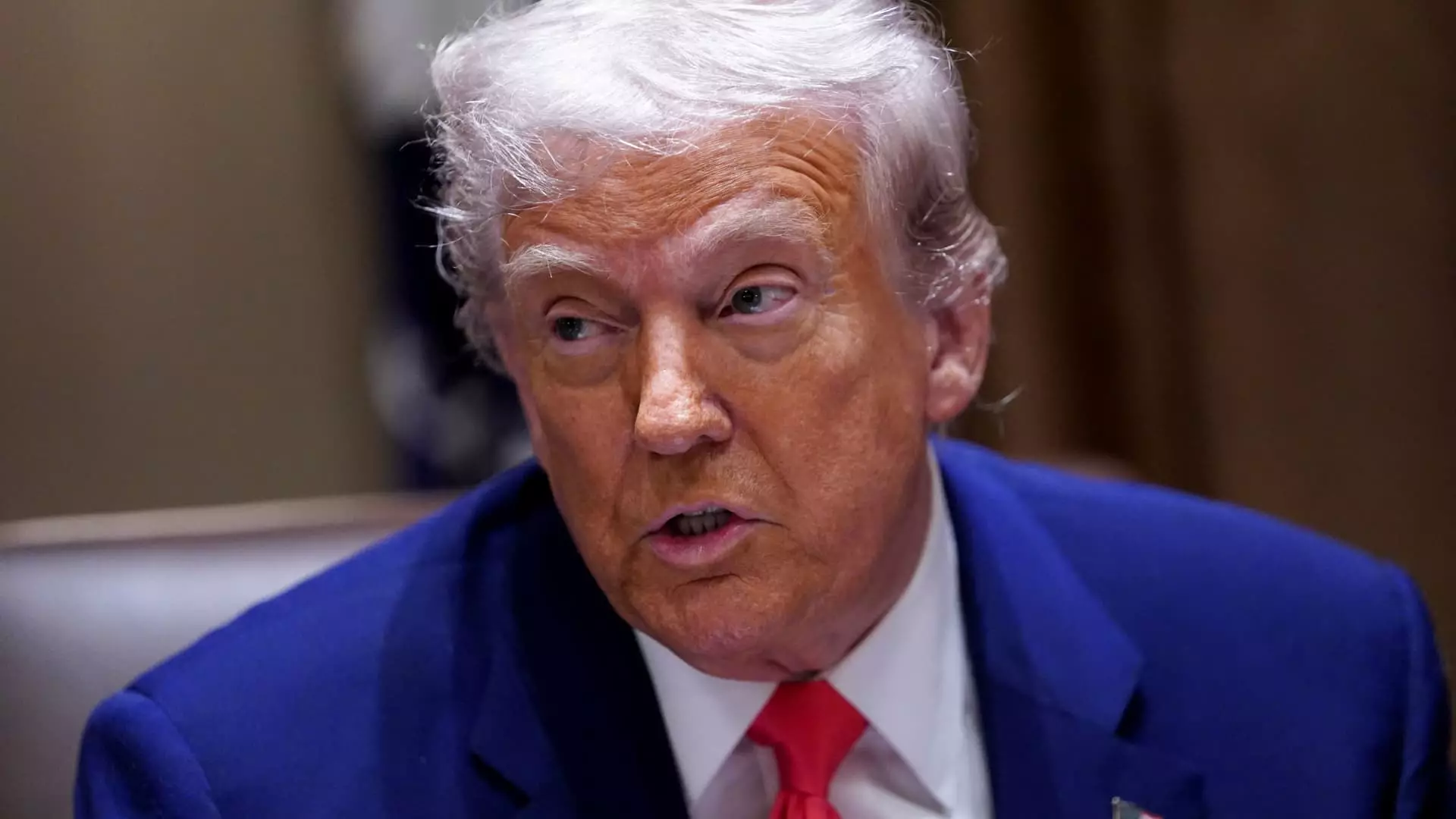In a significant shift in economic policy, President Donald Trump’s recent announcement of soaring tariffs on Chinese imports has sparked alarm among economists and market analysts alike. The staggering increase to 145% on certain goods, as highlighted by Erica York of the Tax Foundation, represents more than just a number; it embodies a turning point that could fundamentally alter the dynamics of U.S.-China trade. Such a tariff is not merely a financial imposition; it serves as a beacon of an intensifying trade war that threatens to obliterate the fragile balance of global trade systems. With each imposed percentage point, we inch closer to economic isolationism that could have far-reaching repercussions not only for the U.S. but for the global economy as a whole.
The Psychological Impact on Markets
Economically, the ramifications of such aggressive tariff policies extend beyond immediate financial figures. The markets reacted sharply to Trump’s tariff announcements, indicative of the deep-seated anxiety pervading investor sentiments. The significant losses seen in the stock markets following the administration’s declarations underscore a broader sense of instability. As York notes, even a temporary pause or reduction in tariffs means little in the grand scheme when the looming threat of an escalating economic standoff remains ever-present. In this landscape of uncertainty, investors are left grappling with a paradoxical reality: while the potential for growth exists, fear drives them towards conservative measures instead of innovation and expansion.
The Irony of Protectionism
Ironically, while Trump posits these tariffs as a means of safeguarding American industries, they seem to carry the potential to do quite the opposite. With tariffs approaching levels not seen since the 1940s, the costs associated with imported goods will only soar. This raises legitimate concerns regarding inflation, particularly for consumers who find themselves paying more for everyday items, from electronics to essential goods. As York aptly outlines, the adverse effects on the average consumer reverberate through the economy, translating into a heavy burden that counters any purported benefits of these tariffs. The fundamental principle of free trade has long been understanding that unilateral actions often lead to retaliatory measures, as evidenced by China’s counter-moves to impose 84% tariffs on U.S. products.
Tax Deception and Economic Consequences
Moreover, the argument that these tariffs will somehow boost federal revenues, as posited by the Tax Foundation’s projection of $171.6 billion in tax increases, is misleading. Yes, they may initially generate revenue; however, the long-term economic ramifications could result in sluggish growth and decreased competitiveness for U.S. businesses. By isolating American industries from global supply chains, we risk fostering an environment of inefficiency and heightened costs, which ultimately harms consumers and the economy as a whole. It’s essential to remember that economic policy should not exist in a vacuum; short-term gains cannot overshadow potential long-term losses that threaten economic vitality.
The Stakeholders Left Behind
The dire reality of elevating tariffs extends beyond political musings; it places immense pressure on working-class Americans who stand to suffer the most. As companies grapple with elevated costs, they are likely to pass those expenses onto consumers, thus exacerbating already precarious economic conditions. The implications are profound: workers may face layoffs as industries adjust to decreased demand and increased operational costs. For a nation that champions the ideals of upward mobility and prosperity, this shift towards protectionism signals a regression rather than the progressive trajectory Americans have always aspired to achieve.
A Call for Pragmatism in Policy
As the dust settles from these announcements, it’s imperative that we advocate for a more nuanced approach towards trade relations—one grounded in pragmatism rather than bravado. The stakes are high, and the risks of pushing too hard create a scenario where the losses outweigh any potential gains. Encouraging mutual cooperation and seeking diplomatic solutions should be the priority, as a well-balanced economic relationship is key to fostering long-term growth and stability. The future of the U.S. economy—and its standing on the global stage—depends on it.

